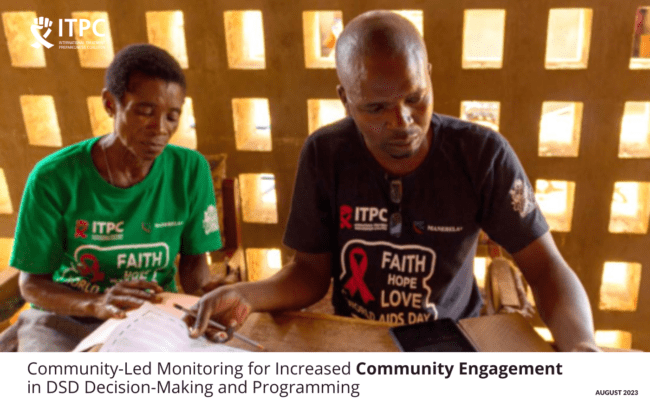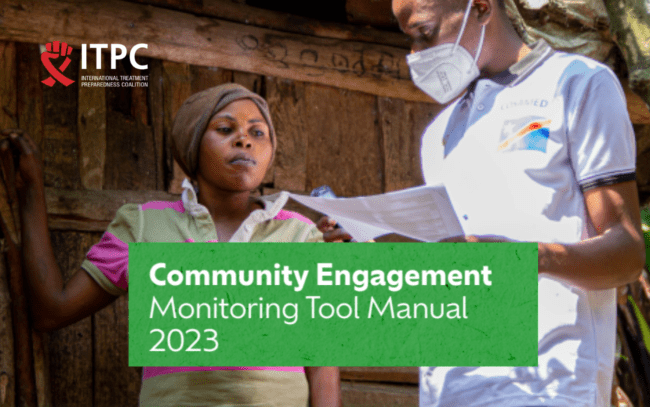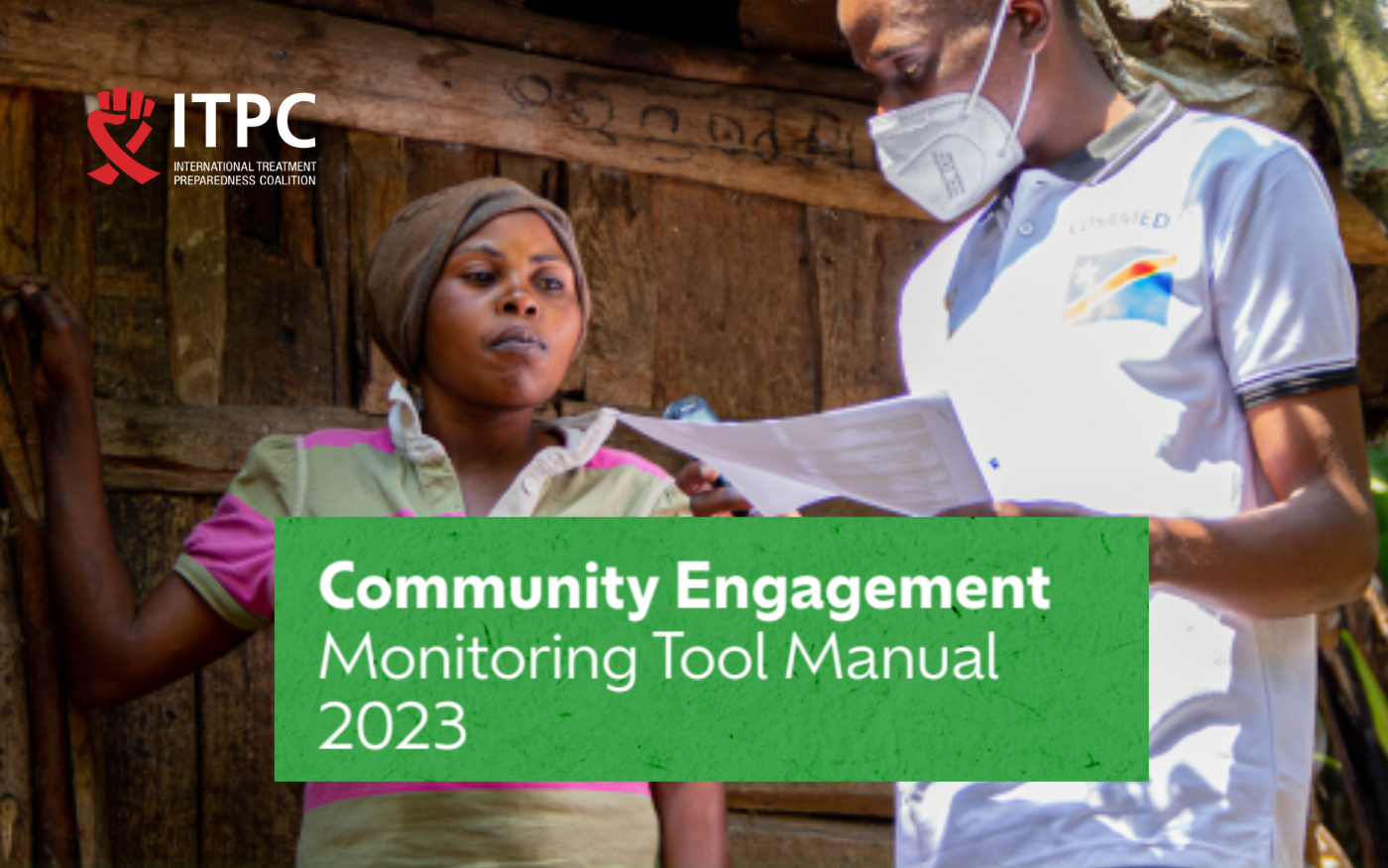Differentiated service delivery (DSD) is a person-centered approach that simplifies and adapts HIV services across the cascade in ways that both serve the needs of people living with and vulnerable to HIV and optimize available resources in health systems. Since DSD relies on people-centered practices, community engagement (CE) is central to its success as the importance of meaningful engagement of recipients of care (RoC) since inception, are highlighted in many program requirements. However, as of today, efforts towards meaningful community engagement (CE) are still suboptimal.
Sustaining robust community responses within health systems is therefore imperative for achieving enduring progress. One exemplary model of successful community engagement (CE) is demonstrated by the Community Advocacy Network (CAN) of the ICAP CQUIN Project on Differentiated Service Delivery (DSD). The CAN works to ensure that the voices of people living with HIV and ROC are central to the CQUIN Learning network and to DSD more broadly. Operating across 22 countries in the African continent in 2022 and 2023, CAN’s innovative application of community-led monitoring (CLM) to CE resulted in the development of an innovative 19- indicator tracking tool for decision-making and programming related to at the country level.
Preliminary findings and related follow-up actions serve as a crucial baseline for enhancing CE levels, identifying gaps, and establishing new relationships with governments and partners. They underscore the untapped and huge potential of meaningful CE and CLM in offering pathways for refining strategies to ensure robust community responses remain central to differentiated HIV service delivery and to health. As importantly, the CE tool fills important knowledge gaps on CE – whether for ROC themselves to better understand their role in DSD (and more broadly the country’s HIV response), and for local authorities to better understand the added value of CE in DSD.
2022 Community Engagement Framework & Monitory Tool roll out
In response to this gap in lack of tools to assess CE, the Community Engagement Community of Practice and a community advocacy network (CAN) were formed, supported by ICAP at Columbia University and the HIV Coverage, Quality, and Impact Network (CQUIN), with funding from the Bill & Melinda Gates Foundation.
In collaboration with the International Treatment Preparedness Coalition (ITPC), the CAN developed a Community Engagement Framework and a monitoring tool to track and enhance CE in DSD policy development, program design, planning, implementation, monitoring, and evaluation.
The results from a pilot of the CE tracking tool in Kenya and in the Democratic Republic of Congo (DRC) in 2021 provided insightful results and sparked interest in the broader CQUIN network. The Excel-based CE tracking tool containing 19 quantitative indicators was then translated from English into French and Portuguese, data collectors were trained, and the tracking tool rolled out in 20 countries between July and November 2022. Based on extensive feedback and experiences from the 2022 roll-out, the CE monitoring tool was further streamlined and complemented by a CE Monitoring Tool Manual.
This assessment seeks to answer if and how communities are engaged in DSD design and implementation, as well as monitoring and evaluation (M&E) across the policy, program, and community levels. The key findings and corresponding recommendations bring further insight into levels of engagement and how to strengthen meaningful CE in countries rolling out.
Using the 2022 CE results, we advocated for the full involvement of RoC in key decision-making processes: CLM technical working groups, quarterly review meetings, validation meetings, stakeholder engagement meetings; and during events such as World AIDS Day. We targeted the ministry of health, AIDS commission, the President’s Emergency Plan for AIDS Relief and Global Fund implementing partners, international NGOs implementing DSD and UN agencies. Community voices are now heard and integrated to programme design and implementation, including joint supervision monitoring with implementing partners. The community’s contribution to service delivery is seen as more transparent compared to previously, creating more trusting relationships.” South Sudan
Community Engagement Monitoring Tool: Building Bridges
“Building Bridges” has been the core of the 2023 Community Engagement (CE) Monitoring Tool roll-out highlighting that CE for Differentiated Service Delivery (DSD) is a recipient of care-centered approach that simplifies and adapts HIV services across the cascade in ways that both serve the needs of People Living with HIV (PLHIV) better and reduce unnecessary burdens on the health system.
The 2023 CE monitoring tool version 2.0 was streamlined based on country feedback from the 2022 roll-out of version 1.0. The 18 quantitative indicator tool was rolled-out across 21 African countries* between July – November 2023. The CE monitoring tool further promotes CE across the policy, programme, and community level and within the design, implementation, as well as monitoring and evaluation area of engagement. By actively involving communities in programme design, implementation, monitoring, evaluation, and policymaking, CE aims to improve the relevance, acceptability, and effectiveness of DSD programmes.
Through the collaboration with ICAP at Colombia University and 21 CAN members, a comparative analysis demonstrating the gradual progression of CE between 2022 and 2023 was conducted. Data shows that 70% of countries have been able to improve their CE levels, several countries report improvements in attitudes from duty bearers towards CE leading to more collaborative relationships with authorities, RoC understanding their roles better resulting in more meaningful engagement, and most importantly pave the way for advocacy initiatives. Data has also highlighted that ongoing tracking of CE in DSD is a critical component in enhancing the effectiveness and reach of HIV services across diverse regions. Building on last year’s insights, this year’s findings further underscore the vital role of CE in DSD, highlighting both expected and unexpected outcomes as demonstrated by South Sudan country partner!
* Burundi, Cameroon, Côte d’Ivoire, Democratic Republic of Congo, Eswatini, Ethiopia, Ghana, Kenya, Lesotho, Liberia, Malawi, Mozambique, Nigeria, Rwanda, Senegal, Sierra Leone, South Africa, South Sudan, Uganda, Zambia and Zimbabwe




